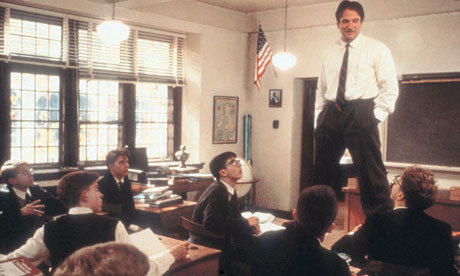
Since my exit from TFA and the world of elementary education, I have had lots of time to reflect and consider the new horizons that lay before us.
In what my wife and I consider to be miraculous fashion, I was hired by Community Care College as a videographer to make media content for that college, as well as Clary Sage College and Oklahoma Technical College. In this position I get to back movies, full time. Wahoo!
My job is called "media assistant" and I am a member of the marketing department. This placement is unique and exciting to me because while I get to use skills I developed as a film student at BYU, I am also in an educational environment that is completely new to me. Initially when I learned that Community Care is a for-profit organization I felt slightly repulsed. However, in the short time I have been here my mind has been opened to the impact and quality of education a group of highly thoughtful and good people can bring about.
As I have been reading Flow: The Psychology of Optimal Experience I realized that one reason I love my new job is it enables me to have meaningful work to do, that requires complex skills at an increasing rate. I am not overwhelmed, and neither am I bored - I am experiencing the "Goldilocks Effect" as Dan Pink calls it. My task is "just right". Time flies as I plan, shoot, and edit projects. I get immense pleasure from struggling with the unique challenges each project gives me. The good news is, I have the skill to engage with these challenges. I feel that is why I suffered so much as a teacher: my skill level was obliterated by the sheer challenges and complexity of effective instruction, causing me severe psychic entropy.
Anyway, here is the first project I made in my new position.
Beyond being allowed to enjoy lots of time "in flow" at my job, I am also overjoyed by the fact that work ends at 5 p.m. and then I go home and have time to spend with my family and improve myself in new ways. Recently I decided I want to improve art skills. I have drawn seriously since I was a kid, and I only stopped because I believed I wasn't as good as I should be if I was serious with drawing.
So each evening I spend some time watching instructors on YouTube and am finding an immense source of flow doing that. I have uploaded a few of my drawings below.
As I have been drawing, I occasionally think to myself, "Why am I doing this? What good can come out of this? It isn't like I am hoping to get a job as an illustrator or animator or anything!" But then I remember the sentiment and lesson expressed from Flow.
"Amateur and Dilettante . . . Nowadays these labels are slightly derogatory. An amateur or a dilettante is someone not quite up to par, a person not to be taken very seriously, one whose performance falls short of professional standards. But originally, "amateur," from the Latin verb amare, "to love," referred to a person who loved what he was doing. Similarly a "dilettante," from the Latin delectare, "to find delight in," was someone who enjoyed a given activity. The earliest meanings for these words therefore drew attention to experiences rather than accomplishments; they described the subjective rewards individuals gained from doing things, instead of focusing on how well they were achieving."
Though I still consider myself an amateur filmmaker (and artist in general), there is no reason for me to allow that fact to rob any sense of enjoyment from the process of creation.
"Hobbies that demand skill, habits that set goals and limits, personal interests, and especially inner discipline help to make leisure what it is supposed to be - a chance for re-creation. . . instead of using our physical and mental resources to experience flow, most of us spend man hours each week watching celebrated athletes playing in enormous stadiums. Instead of making music, we listen to platinum records cut by millionaire musicians. Instead of making art, we go to admire paintings that brought in the highest bids at the latest auction. WE do not run risk acting on our beliefs, but occupy hours each day watching actors who pretend to have adventures, engaged in mock-meaningful action."Kas and I do watch Downton Abbey and Sherlock, but apart from that I am really trying to embrace new hobbies or activities that will challenge me to improve myself - and use the faculties I have been blessed with. Said C K Brightbill (and quoted in Flow),"The future will belong not only to the educated man, but the man who is educated to use his leisure wisely."








